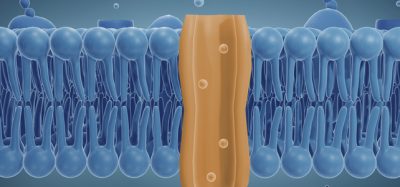Anti-stroke drug Vinpocetine could be effective as a treatment for middle-ear infections
Posted: 22 May 2015 | Victoria White
Vinpocetine is an effective treatment for middle-ear infections, showing the ability to improve bacterial clearance and reduce hearing loss…

An existing anti-stroke drug is an effective treatment for middle-ear infections, showing the ability to suppress mucus overproduction, improve bacterial clearance and reduce hearing loss, according to researchers at Georgia State University and the University of Rochester.
The findings could result in a novel, non-antibiotic treatment for otitis media, or middle-ear infection, possibly through topical drug delivery. Vinpocetine, the drug involved in the study, has long been used to treat neurological disorders such as stroke.
The study found topical administration of Vinpocetine suppressed inflammation and the overproduction of mucus induced by Streptococcus pneumonia bacteria, improved hearing loss in the middle ear and significantly improved bacterial clearance in animal studies.
Vinpocetine may play a critical role in inhibiting inflammation and enhancing antimicrobial defenses in otitis media
“Our encouraging preliminary data suggest that the repurposed drug Vinpocetine may play a critical role in inhibiting inflammation and enhancing antimicrobial defenses in otitis media,” said Dr. Jian-Dong Li, director of the Institute for Biomedical Sciences at Georgia State and a Georgia Research Alliance Eminent Scholar in Inflammation and Immunity. “Our proposed studies may lead to developing novel, non-antibiotic therapeutic strategies to control immunopathology, reduce mucus overproduction, improve hearing loss and enhance host defense for otitis media.”
Otitis media is the most common childhood bacterial infection and the leading cause of conductive hearing loss. Streptococcus pneumonia is one of the most common bacterial pathogens causing middle-ear infection.
Children with frequent middle-ear infections may suffer from speech and language disabilities because otitis media causes hearing loss during a crucial period for speech and language development.
There are currently no effective non-antibiotic agents for otitis media
There is an urgent need for novel, non-antibiotic agents to suppress overactive inflammation without significant side effects. There are no effective non-antibiotic agents for otitis media because of poor understanding of the Streptococcus pneumonia pathogenesis. Inappropriate antibiotic use has led to increased antibiotic resistance. Vaccines against Streptococcus pneumonia have a limited impact on otitis media, Li said.
Mucin, the major component of mucus, plays an important role in the clearance of bacterial pathogens, but uncontrolled, excessive mucus production can lead to conductive hearing loss and decreased bacterial clearance. There is also a lack of effective therapeutic agents for controlling mucus overproduction in otitis media.
This study’s findings could also have a significant impact as a new treatment option in countries where surgery is not readily available, Li said.
Drug repositioning has several advantages over traditional drug discovery, such as reduced safety risk, side effects, time and costs. There have been no reports of significant adverse effects and toxicity at therapeutic doses of Vinpocetine in adults and children. As a result, Vinpocetine is attractive to scientists and clinicians seeking novel therapeutic applications.
The findings are published in the Journal of Immunology.
Related topics
Antimicrobials, Drug Discovery, Vinpocetine
Related conditions
Stroke







